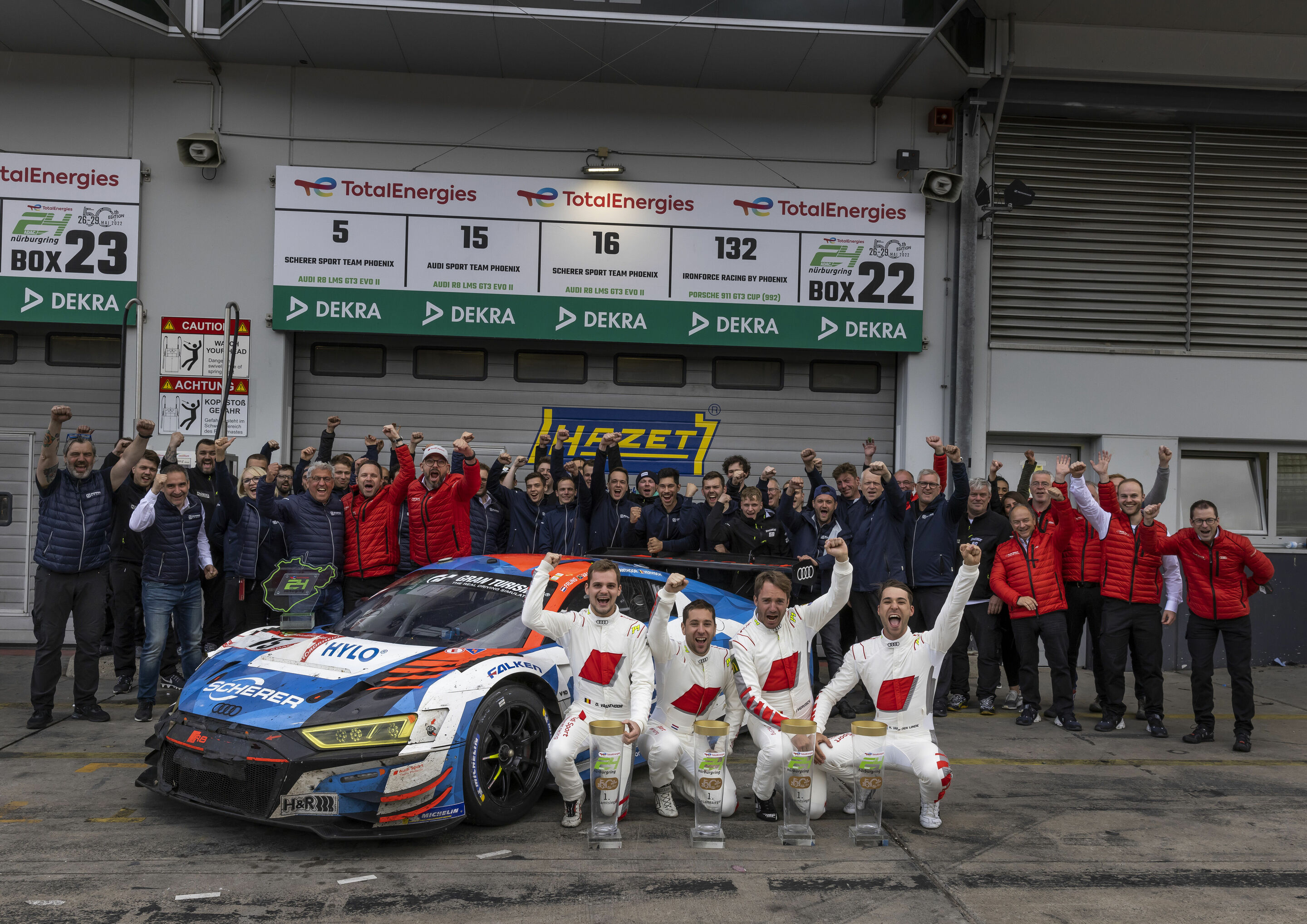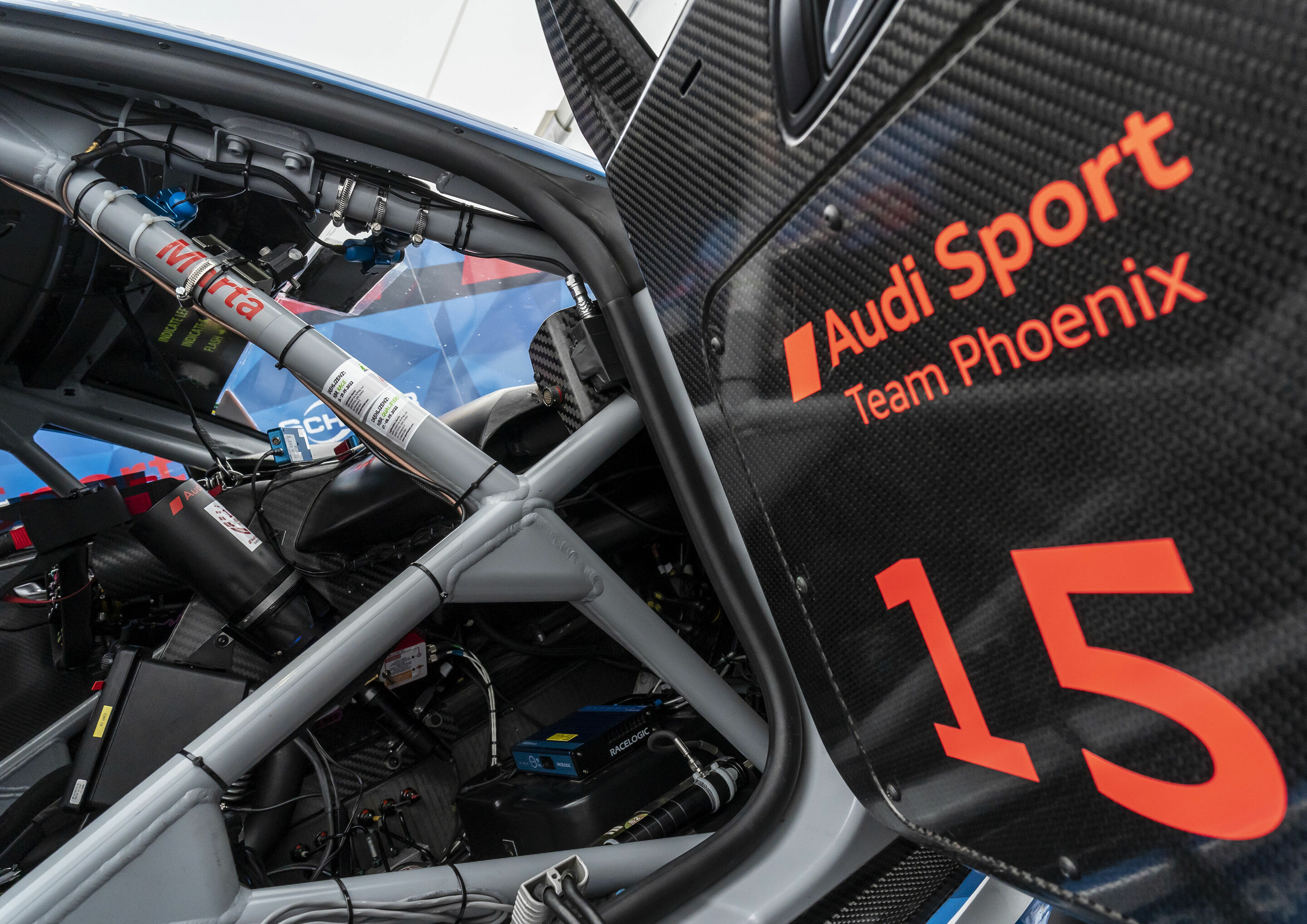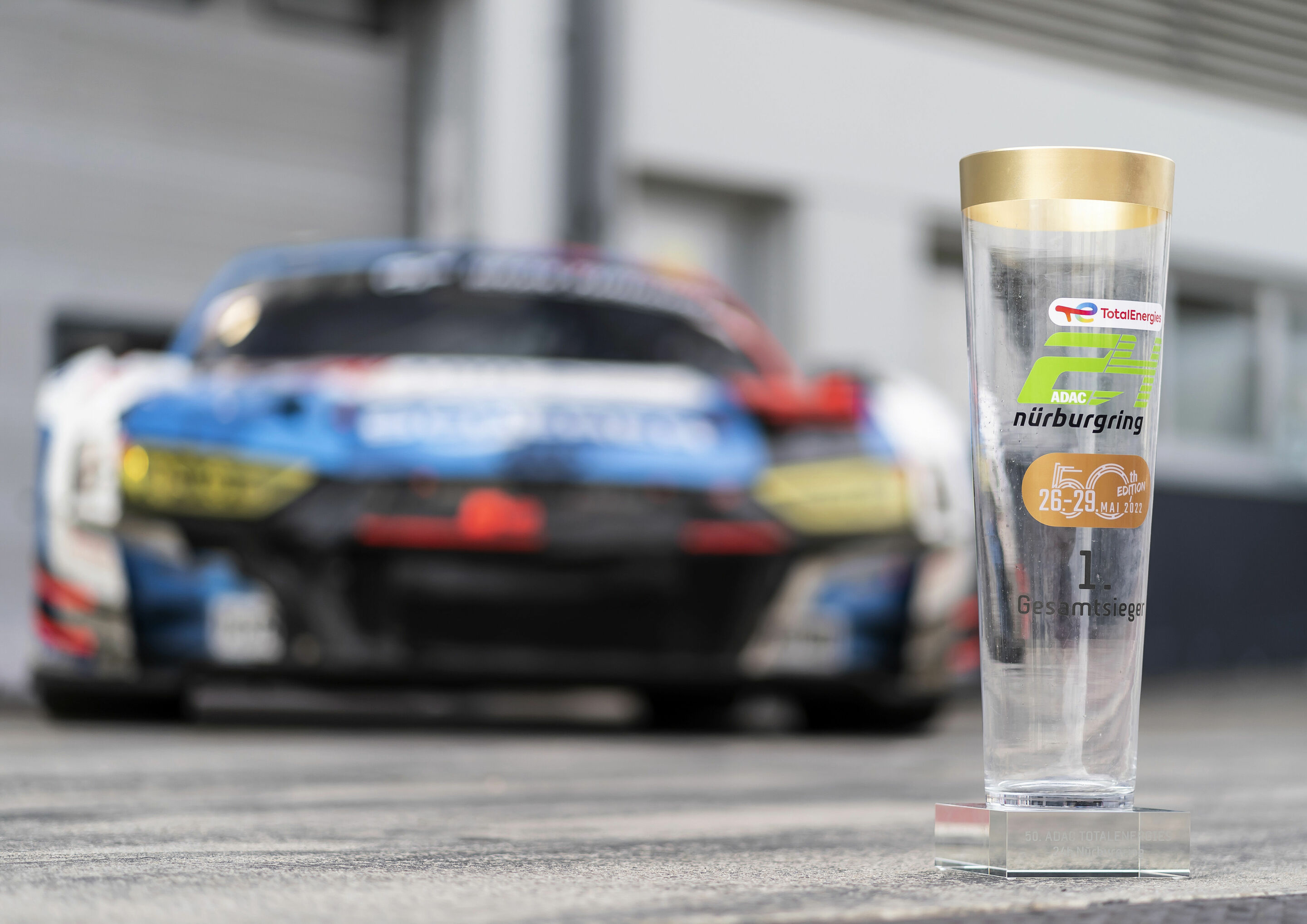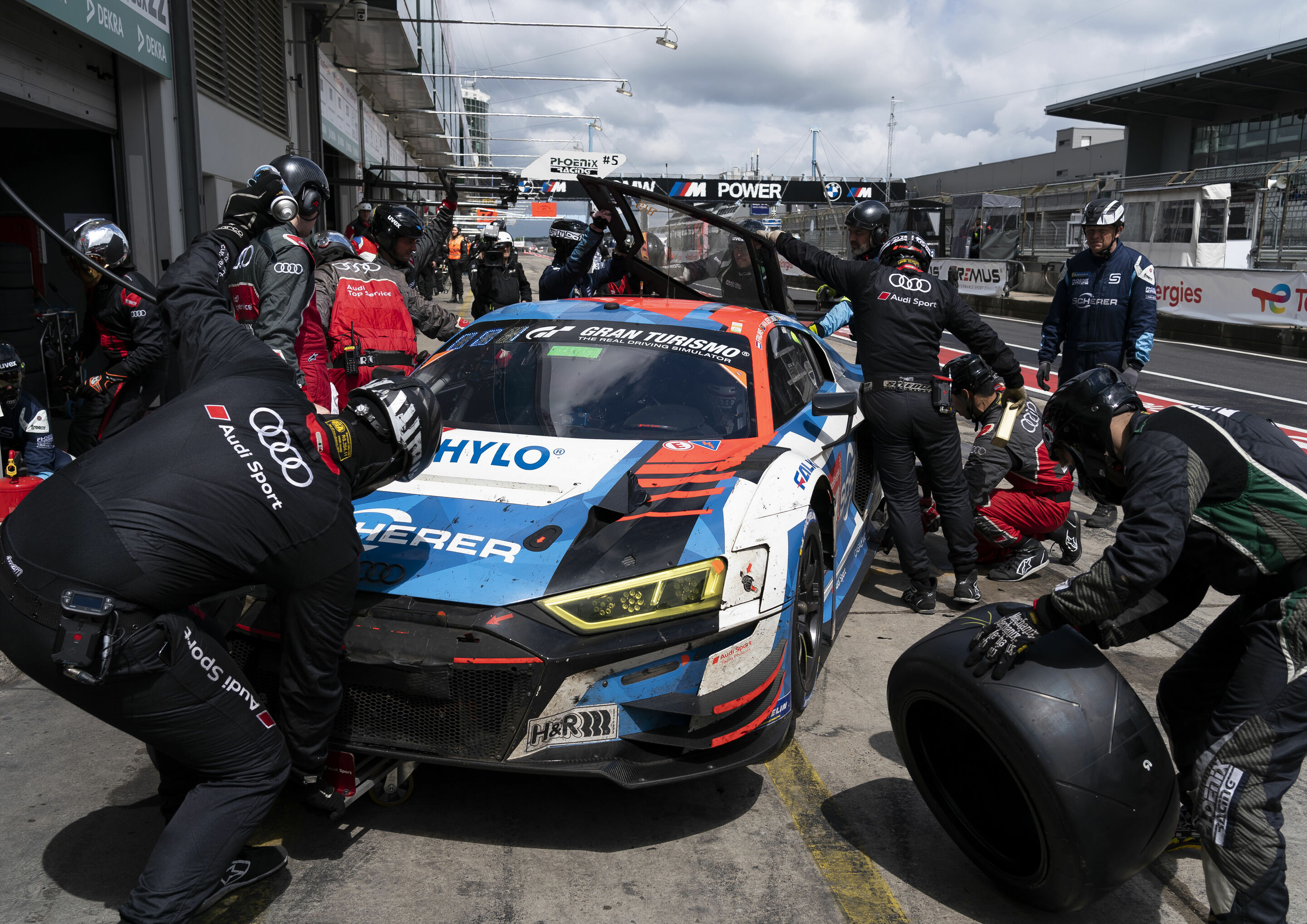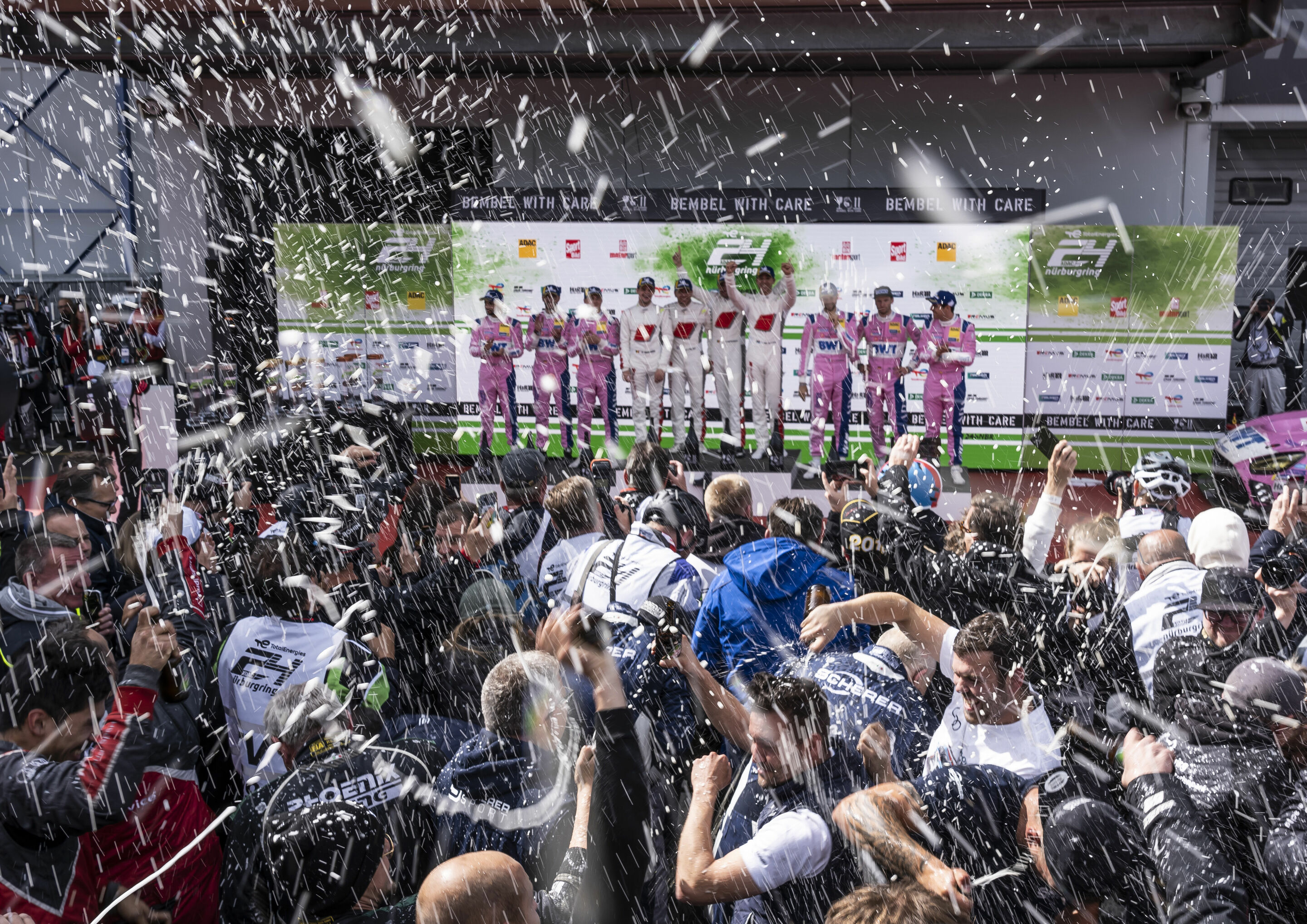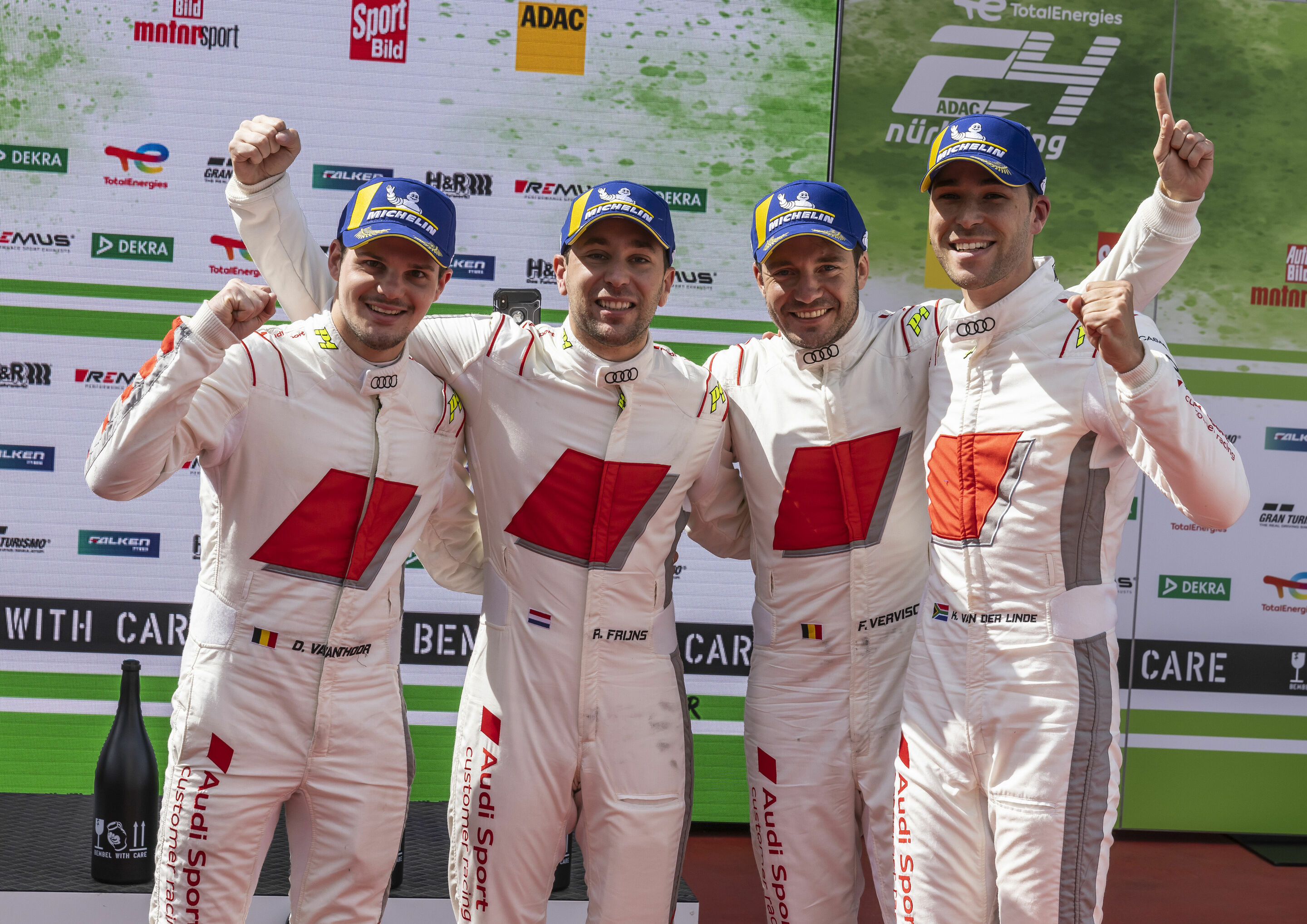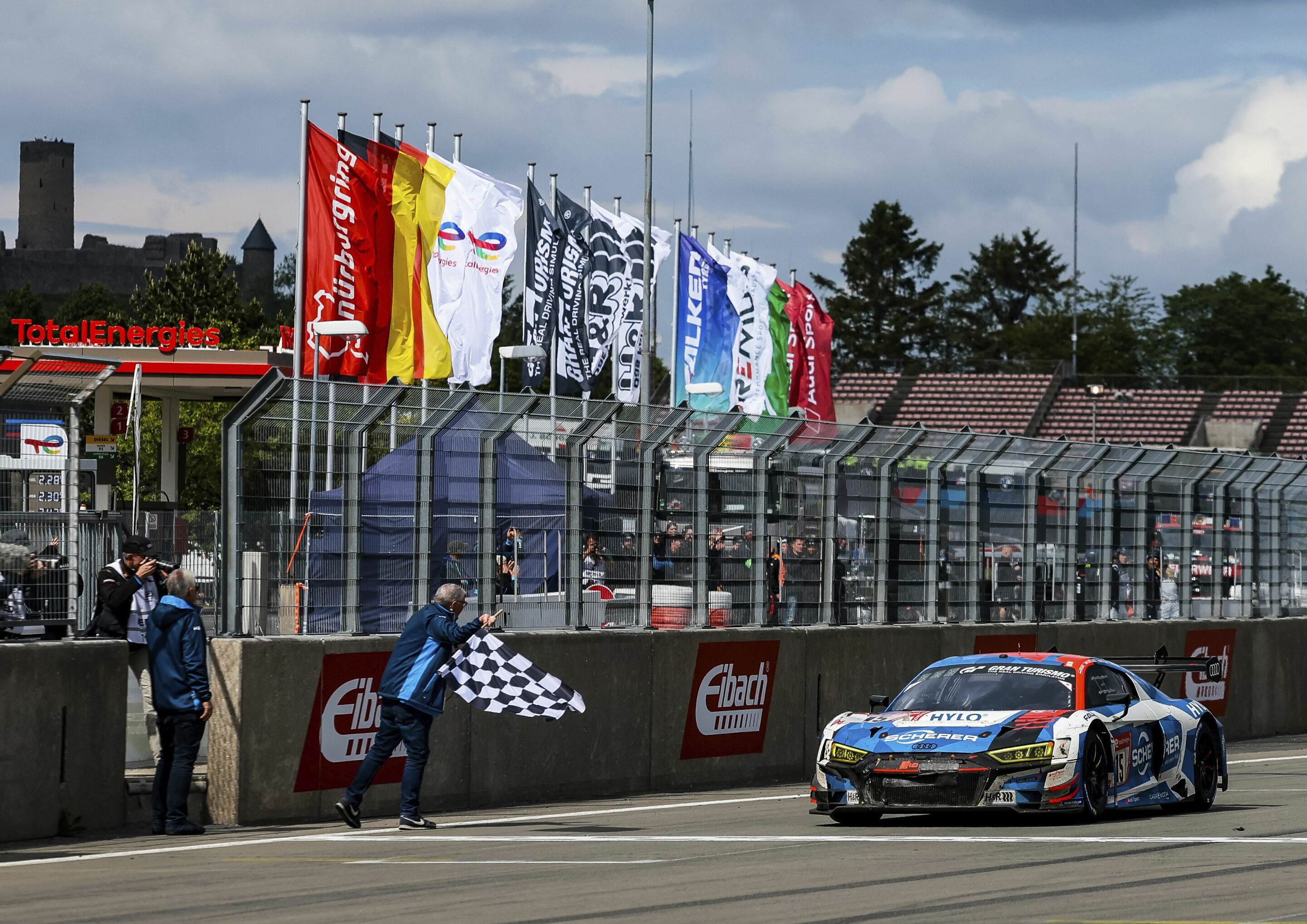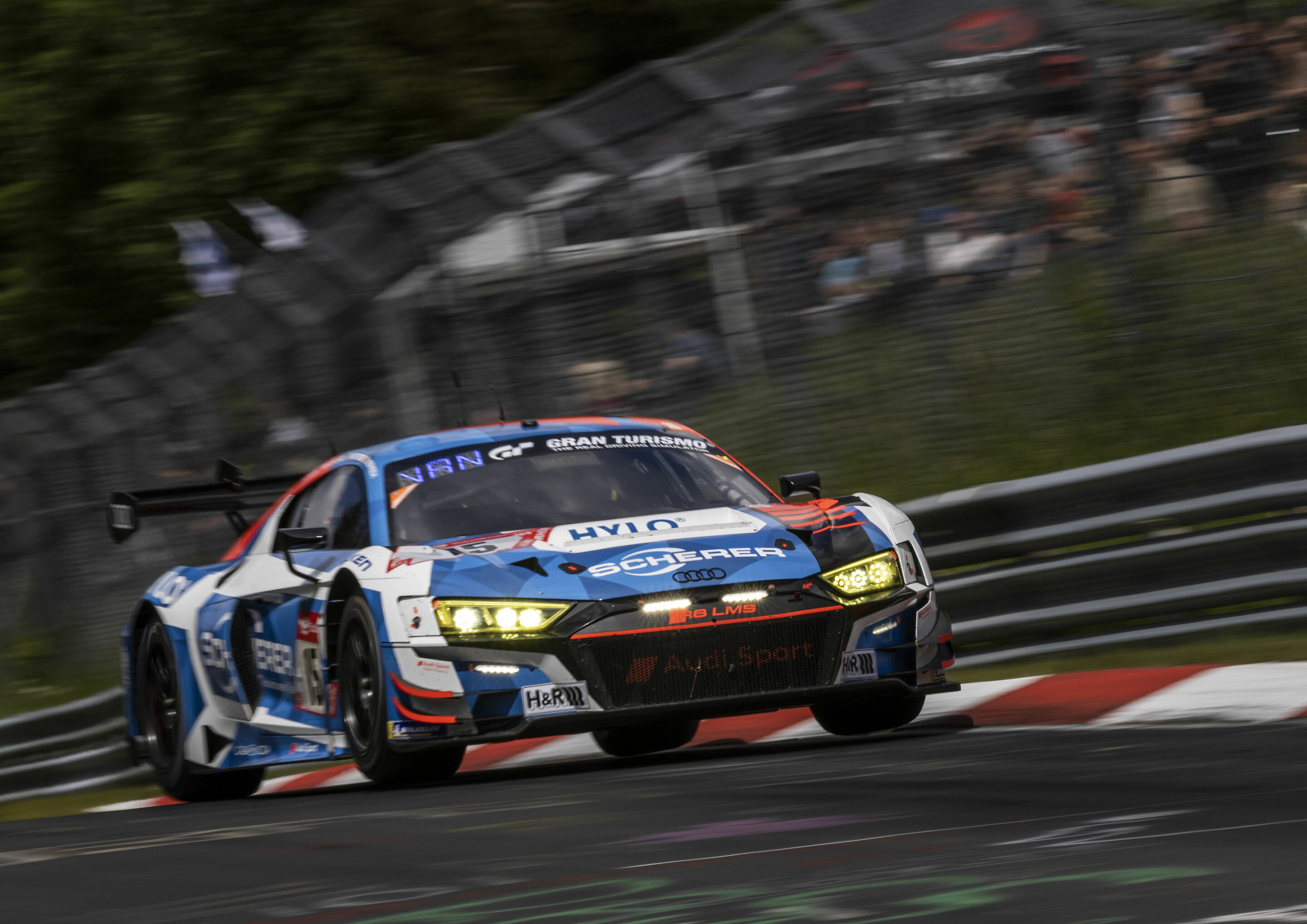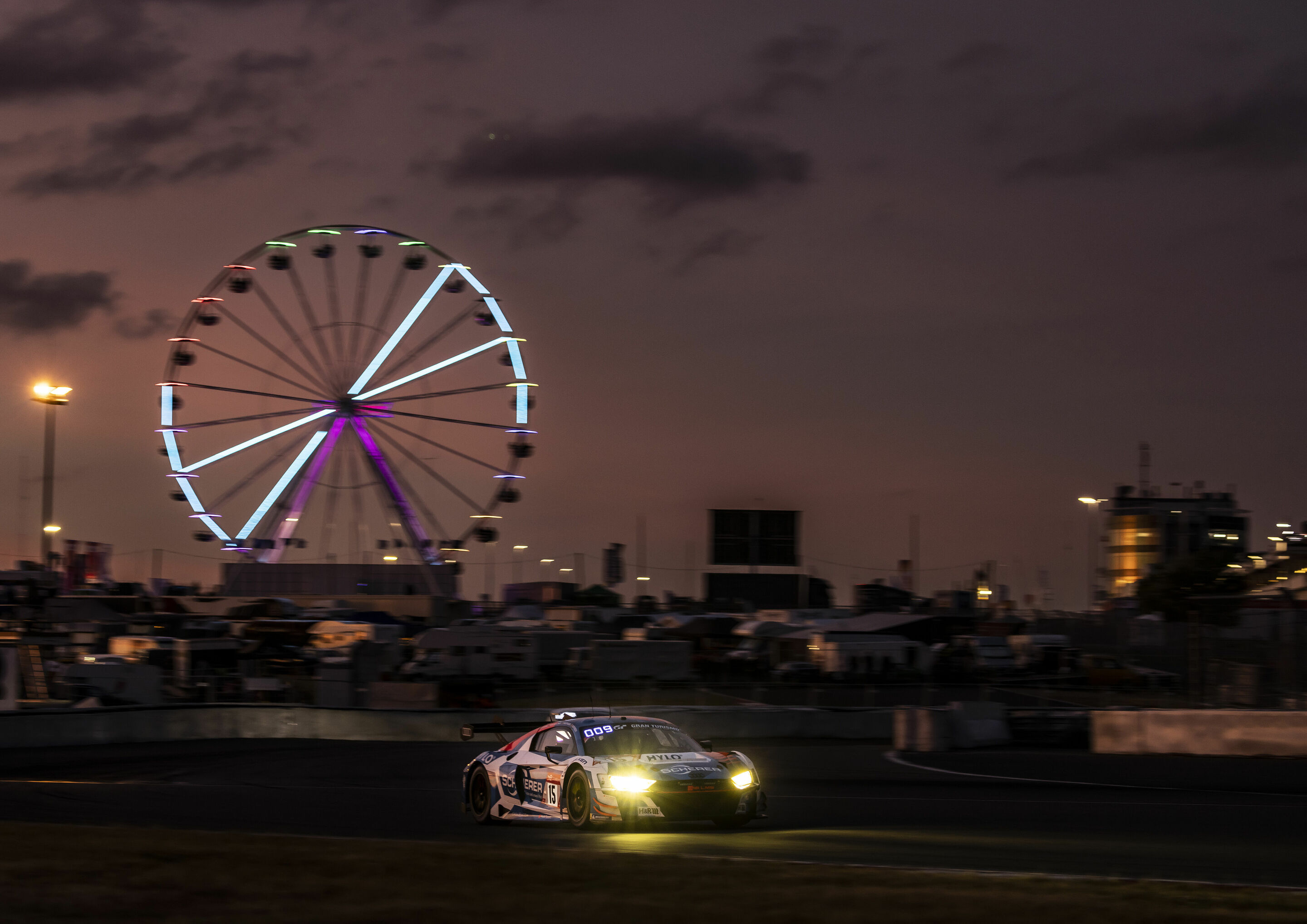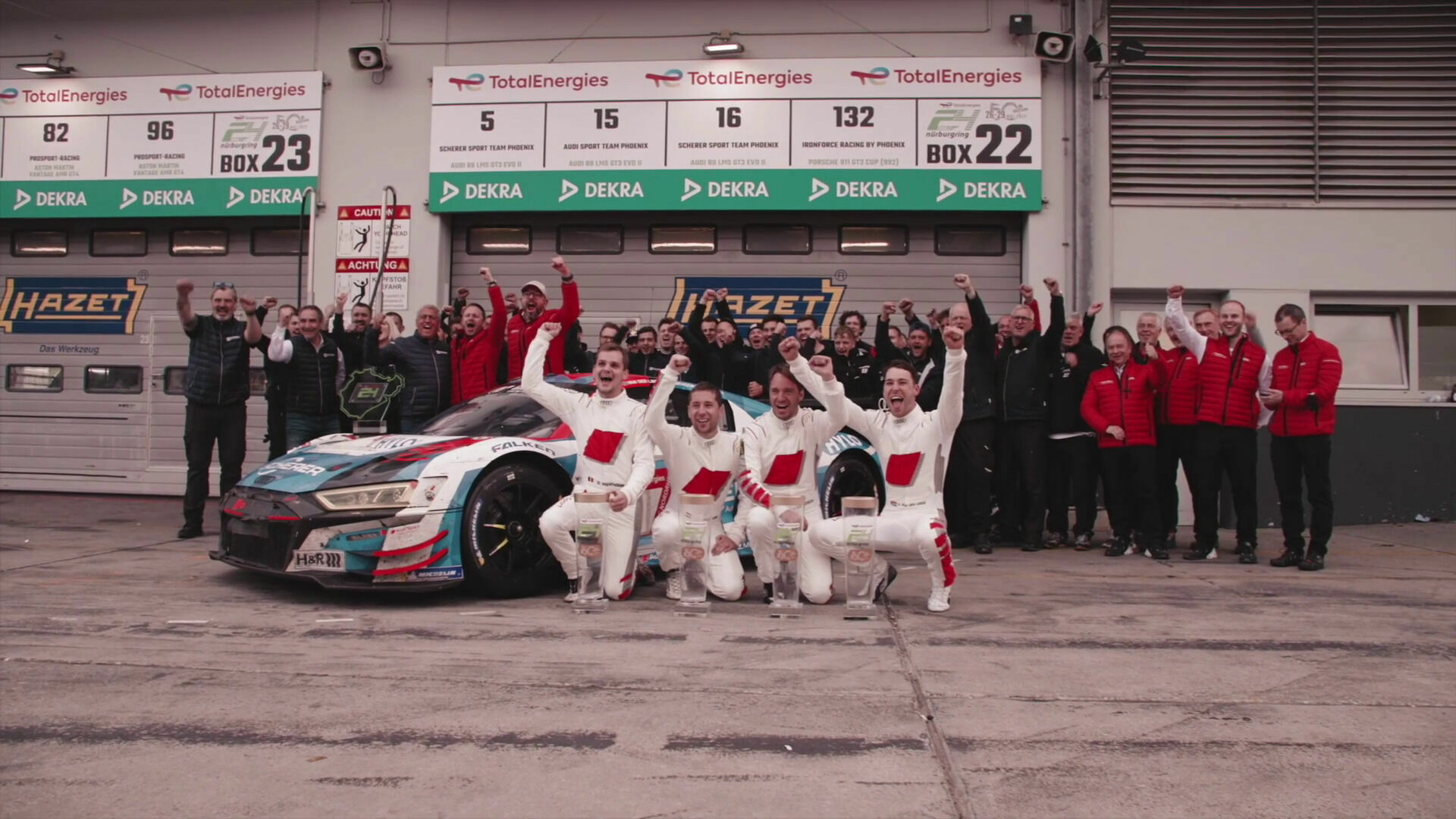Facts about the sixth victory of the Audi R8 LMS at the Nürburgring 24 Hours
- 16th overall victory of the Audi R8 LMS in a 24-hour race
- Previously used car with more than 30,000 kilometers equalizes distance record in the Eifel
- Many human-interest stories shape the most recent Nürburgring success
Audi Sport customer racing won the anniversary edition of the Nürburgring 24 Hours on May 29. Facts about the brand’s success at the 50th twice-around-the-clock endurance race in the Eifel.
Audi decided the iconic endurance race in its favor for the sixth time. In 2012 and 2014, the first generation of the Audi R8 LMS won and in 2015, 2017, 2019 and 2022, the second generation was victorious. As a result, Audi has remained the most successful manufacturer in the race during this specific period of time.
For Phoenix Racing, the team based directly at the Nürburgring, it also marked the sixth victory at its home race, the fourth of which the team has clinched with Audi as Audi Sport Team Phoenix. Ernst Moser’s squad was the fastest competitor in 2012, 2014, 2019 and now once again with the R8 LMS.
Audi Sport drivers Kelvin van der Linde, Dries Vanthoor and Frédéric Vervisch each have previously won this race once with Audi. The South African van der Linde achieved his breakthrough in 2017 with Audi Sport Team Land and the two Belgians, Vanthoor and Vervisch, were part of the winning team in 2019. For Robin Frijns, this was the first 24-hour race victory in his career.
Audi Sport customer racing has claimed its second 24-hour victory this season with its teams, following the MS7 by WRT team’s triumph in the Dubai 24 Hours in January. Dries Vanthoor was involved in both successes.
Ever since the program was launched in 2009, Audi Sport, to date, has clinched 16 overall victories in 24-hour races with the various versions of the R8 LMS at the Dubai, Nürburgring, Sebring, Spa and Zolder race tracks. In American club racing, customer teams have additionally achieved three victories across the unusual distance of 25 hours.
The starting position for the number 15 Audi was anything but favorable. The line-up of four drivers in the first group only started the race only from twenty-first position on the grid. The blue-white-red liveried Audi took the lead for the first time on lap 49, hence eight hours into the race shortly before midnight.
The race car from Audi Sport Team Phoenix completed a total of 84 laps in the lead before the finish, but it wasn’t the only Audi to have led the field some of the time: car number 22 from Audi Sport Team Car Collection led for six laps. As a result, Audi was out in front for 2,284 kilometers or 56 percent of the whole race’s distance.
A total of 42 lead changes between the individual race cars from Audi, Aston Martin, BMW, Ferrari, Lamborghini, Mercedes-AMG and Porsche characterized the anniversary edition. Consequently, all of the manufacturers represented in the leading SP9 class were front runners at least once.
With a total distance of 159 race laps equating to 4,035 kilometers completed, Audi Sport Team Phoenix equalized its own distance record in this race that the squad had set in 2014.
In the race, Robin Frijns, Kelvin van der Linde, Dries Vanthoor and Frédéric Vervisch listened to the commands issued by their race engineer Wim Everaerts. He regularly works for Audi’s customer team WRT and was signed for Audi Sport Team Phoenix just shortly before the Nürburgring 24 Hours.
Some of the factors that Everaerts was not accustomed to included the frequently long names of the many famous track sections at the Nürburgring. The Belgian openly admitted that they were not always easy for him to understand and that it repeatedly took him some time to find them on the map. The engineer also had to get used to the prevailing temperatures: at night, it was so cold that he wore several jackets.
Not unusual at all for him was working with the drivers. Everaerts, in 2019, led Kelvin van der Linde, Frédéric Vervisch and Dries Vanthoor to victory with Audi as their engineer at the Suzuka 10 Hours, a round of the Intercontinental GT Challenge.
At the Nürburgring on the last weekend in May, van der Linde reeled off 49 race laps, Vanthoor completed 40, Vervisch 38 and Frijns 32.
This time, Frédéric Vervisch exercised particular caution, not only in the race, but also afterwards. After his first glass winner’s trophy from the Nürburgring in 2019 broke while unloading it after his return home, he now asked his team to send it home to him.
In total, the team was allowed to use 29 tire sets from its partner Michelin, but managed to cover the whole distance with 26 sets. Slicks were used at all times during the race, the mechanics only twice mounted cut slicks. The utilization of this variant proved decisive in changeable weather conditions during the final stage, because it enabled Kelvin van der Linde to pull clear again of his immediate rivals in a Mercedes-AMG.
During a total of 20 pit stops, the number 15 Audi spent one hour and one minute parked in front of garage number 22 for refueling, technical service and driver changes.
As previously in the 2019 victory, the Audi R8 LMS impressed with its reliability. The fact that six of the seven Audi GT3 cars that had started from the grid crossed the finish line, together with the fact and that car number 5 retired due to an accident and not as a result of technical problems, underscores the strengths of this model.
The victorious number 15 Audi with chassis number AS4SAFGT201900134 contested its first race in 2019 – the Kyalami 9 Hour. Including the 2022 Nürburgring 24 Hours, this GT3 sports car has participated in 14 races and five tests with Audi Sport customer racing, together with Teams Land-Motorsport, Phoenix Racing and WRT. They include three 24-hour races at the Nürburgring since 2020 and the two 24-hour races at Spa during the same period of time. At the fifth race of the Nürburgring Langstrecken-Serie in 2020, this car achieved its first victory on the Nordschleife.
To date, this Audi R8 LMS has covered 35,774 kilometers at these events – equating to 6,000 more kilometers than the 2019 Nürburgring winner that, with 29,836 kilometers, was also a successful previously used car. Then as is the case now, Scherer Sport was among the partners in victory.
The chassis that was assembled for the first time in calendar week 33/2019 is called Marta in keeping with Audi Sport customer racing’s tradition of allowing employees to personalize the cars in this way.
In 2022, Audi Sport customer racing invested quite a bit of time working on the preparation of the subsequent Nürburgring-winning car. In February, the mechanics converted the model to the current evolution evo II that has been developed specifically for customers. At the Nürburgring Qualifiers on the second weekend in May, the car had an accident in the first race, leaving only six working days for reassembling it in time for the 24-hour race. “With that, we’re demonstrating to our customers and the general public once again the high-quality nature and durability of our products,” says Chris Reinke, Head of Audi Sport customer racing.
On the Thursday following the race weekend, car number 15 will be displayed in its original “patina” from the Nürburgring at AUDI AG’s works assembly at the Neckarsulm plant, before embarking on a small winner’s tour.
